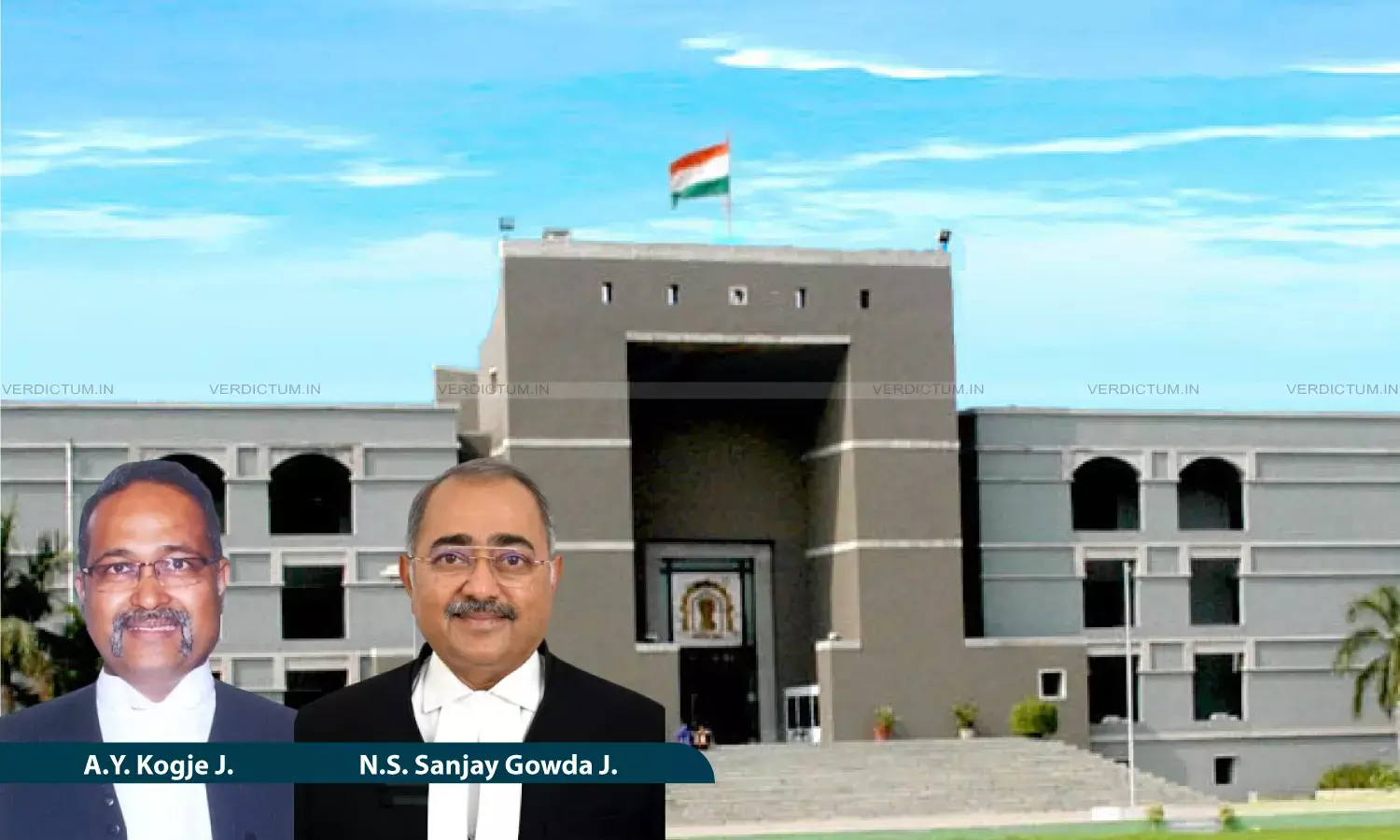Expression Of Mutual Consent Is Sufficient To Dissolve ‘Nikah’ Under Muslim Law: Gujarat High Court
The Gujarat High Court enunciated that when parties to the Muslim marriage come to an agreement to mutually dissolve their Nikah, they are at liberty to do so.

Justice A.Y. Kogje, Justice N.S. Sanjay Gowda, Gujarat High Court
The Gujarat High Court held that the expression of a mutual consent to dissolution of ‘Nikah’ (marriage) is sufficient to dissolve it under the Muslim law.
The Court held thus in a First Appeal filed jointly by the husband and wife against the Order of the Family Court by which the Family Suit was dismissed, treating the same to be not maintainable.
A Division Bench comprising Justice A.Y. Kogje and Justice N.S. Sanjay Gowda observed, “… the Court does not find that recording of an agreement between the parties to the Nikah in any written format is essential for recording the fact of dissolution of marriage. For the purpose of Mubaraat, the expression of a mutual consent to dissolution of Nikah is sufficient to dissolve the Nikah in itself.”
The Bench enunciated that when parties to the Muslim marriage come to an agreement to mutually dissolve their Nikah, they are at liberty to do so and by virtue of this mutual agreement, the Nikah stands dissolved.
Advocate Samrat R. Upadhyay appeared for the Appellants while AGP Urvashi Purohit appeared for the Respondent.
Factual Background
The marriage between the parties (Appellants) was solemnised as per Islamic Shariyat and in accordance with the customs and rituals of their caste in the year 2021. Hence, they were legally wedded husband and wife. Out of the wedlock, three children were born. After marriage, there occurred differences which increased day by day to the extent that the parties felt it impossible to live with each other.
Due to the conflicts, the wife had to leave her matrimonial home and since more than one year, the parties were living separately. They tried to solve the problems but all in vain. Resultantly, they mutually agreed that their marriage be dissolved in the interest of future to come. Hence, they filed a Petition for declaration of dissolution of marriage by way of ‘Mubaraat’. However, the Family Court held that the said Petition is not maintainable. Being aggrieved, the parties were before the High Court.
Reasoning
The High Court in the above context of the case, noted, “In the available literature as referred in the preceding paras, there is nothing to suggest that there has to be a written agreement of Mubaraat nor there is a practice prevailing regarding maintaining of the register to record such agreement for mutually dissolved Nikah.”
The Court remarked that when both the husband and wife to the Nikah had decided upon to dissolve the marriage by Mubaraat, according to the pleadings to the said fact, then the suit filed before the Family Court was only for the purpose of recognizing the fact of ‘Mubaraat’ and declaring the dissolution of the Nikah entered into by both the parties by mutual consent.
“An error is therefore, committed by the Family Court in holding that for written agreement for mutually dissolving the Muslim Law by Mubaraat is a sine qua non as the same is not subscribed to any verse of Quran, Haddit or the practice followed amongst the Muslims under the personal law. The logic given by the Family Court with regard to registering of a Muslim marriage under a register to treat it as a written contract is also erroneous as such register and Nikahnama only recognizes the agreement entered into by the parties to the marriage by uttering the words “Kabul” in presence of the witness that does not make a Nikahnama or registration of a Nikah part of an essential process of Nikah”, it said.
The Court added that there is no process by which the written agreement is essential requirement for Mubaraat. It further observed that when both the husband and wife jointly approach to recognize the process of Mubaraat for dissolution of their Nikah, it merely sought a declaration of their marital status thereon.
Conclusion
The Court also noted that Section 7 of the Family Courts Act, particularly Clause-b of explanation to Section-7 confers the jurisdiction upon the Family Court to declare a status of the litigation with regard to the marriage which pre-existed.
“Therefore, in the opinion of this Court, the family suit for the aforesaid relief prayed for was maintainable and it was within the jurisdiction of the Family Court to have acted under Section-7”, it concluded.
Accordingly, the High Court allowed the Appeal, remanded the case, and directed the Family Court to conclude the proceedings as expeditiously as possible, preferably within 3 months.
Cause Title- ABC & Anr. v. None (Neutral Citation: 2025:GUJHC:46034-DB)


